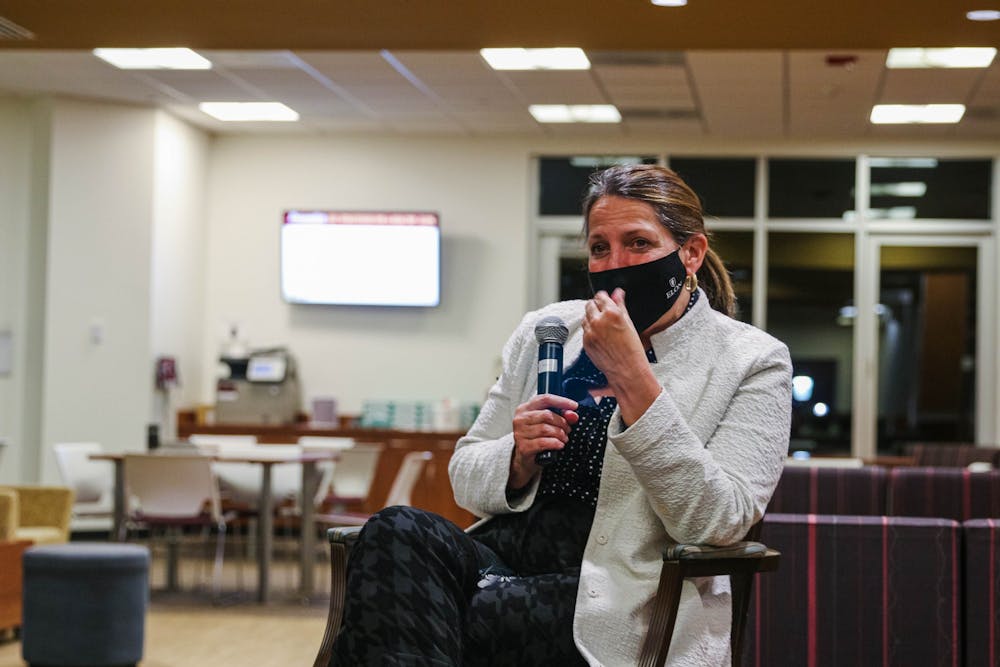Elon’s Student Government hosted a fireside chat event with President Connie Book and Vice President of Student Life Jon Dooley to answer student questions regarding student pay, COVID-19 and green initiatives on campus.
Senior Anita Harkov asked about student employees receiving pay raises. Book said that due to COVID-19, enrollment has been stagnant for the past two years. Due to this, pay raises haven’t been available for students, yet, these pay bumps that normally occur are something that Book hopes to restore.
Book said that her goal in the future is for all student part-time employees to be making $15 an hour, minimum. Book explained that the minimum wage for all full-time hourly employees at Elon is $15, showing that increasing students' pay is feasible and something the university has already successfully done.
“We made a commitment to the $15 minimum wage in 2015, and we rolled it in over three years and so now our hourly full time people are earning $15 an hour, so we'd love our part time people to have that same option,” Book said.
According to Book, Elon has prompted two new health initiatives. Elon is now working with a telehealth provider to help students both physically and mentally. In addition, the Koury athletic center is working with a task force to become more holistic to help integrate student health.
Book said that Elon has been working with a telehealth provider for about a month now and will follow up to see how students enjoy this system. By partnering with a telehealth provider, students are ensured to have access to immediate care without having to go off campus, Book said.
“Those services are now available on demand,” Book said.“That's a key investment to have that redundancy in our system for when we get overwhelmed, like we did with the delta variable.”
In response to freshman Cole Meixsell’s question regarding what Elon plans to do in order to be more sustainable, Book said that Elon’s goal is to be carbon neutral by 2037. According to Book, they are already building on this by having diversity of energy supply — such as the solar panels by Loy Farm and the geothermal wells in Colonnades. However, the university has more plans in place.
“Our new engineering building is going to have a very exciting solar powered feature, that I can't say because it's going to be a surprise,” Book said. “It's going to be installed over the summer.”
Book also said that by buying local food, Elon has benefitted the surrounding community by cutting shipping and travel costs. Over the last three years, Elon has transitioned from having 17% of it’s food locally sourced to 50%, Book said.


